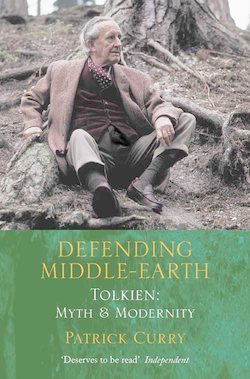Читать книгу Defending Middle-earth: Tolkien: Myth and Modernity - Patrick Curry - Страница 18
Fascist?
ОглавлениеWilliams says that nostalgic ‘celebrations of a feudal or aristocratic order’ embody values that ‘spring to the defence of certain kinds of order, certain social hierarchies and moral stabilities, which have a feudal ring but a more relevant and more dangerous contemporary application … in the defence of traditional property settlements, or in the offensive against democracy in the name of blood and soil.’
Williams’ disciple and biographer Fred Inglis has made the unpleasant implications of this passage explicit in relation to Tolkien, whose ‘schmaltz-Götterdämmerung’ (he wrote) is such that ‘for once it makes sense to use that much-abused adjective, and call Tolkien a Fascist.’ He later retracted this outrageous slur only to claim the same thing of The Lord of the Rings: ‘instead of Nuremberg, Frodo’s farewell.’
So let us consider the politics (in the narrow sense) of both Tolkien and Middle-earth. Before doing so, however, I would like to point out that there is simply no Wagnerian ‘Götterdämmerung’ in The Lord of the Rings; ‘Victory neither restores an earthly Paradise nor ushers in New Jerusalem.’ In addition, Tolkien disliked Wagner’s Der Ring des Nibelungen, with which his work has often been bracketed – ‘Both rings were round,’ he once snapped, ‘and there the resemblance ceases’ – and all the more so for drawing directly on some of the same mythological material that Wagner only knew second-hand, and used to such very different ends. (Interestingly, Ragnarok was a relatively late aspect of Germano-Scandinavian mythology that never caught on in the pagan Anglo-Saxon England that so influenced Tolkien. Even then, it was, apparently, un-English in its melodrama.)
